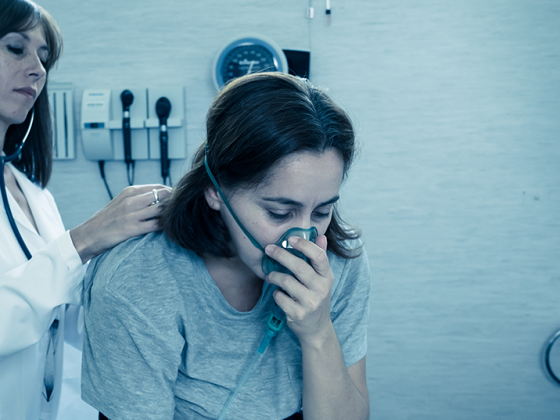The theme of this year’s meeting of European neurologists was “Getting Evidence Into Practice.” Accordingly, the focus of the exchange was on ways to apply theoretical knowledge in practice. To this end, questions discussed included which clinical trial designs are most appropriate for practice, what evidence is relevant to the use of diagnostic tests, and whether guidelines are a useful tool for improving outcomes. Stated goal: To reduce the burden of neurological disease.
Guidelines translate scientific research findings into recommendations that can improve the quality of clinical decisions by reducing inappropriate practices. It is estimated that approximately 30-40% of patients receive treatments that are not based on scientific evidence, and 20-25% are either unnecessary or potentially harmful. Global guidelines can help bridge this gap between research and clinical practice, but the mere existence of guidelines does not necessarily lead to their implementation and changes in practice. Research that has identified the determinants of implementing global guidelines in different settings has highlighted several factors that are commonly referred to as barriers to change. These include health worker factors such as knowledge, awareness, expectation of positive outcomes, attitudes, as well as patient factors such as applicability, patient preferences and behavior, and organizational and environmental factors. Therefore, guideline implementation strategies target and attempt to overcome these potential barriers, although no strategy has yet been identified that is effective in all circumstances. Furthermore, there is the idea that outcomes improve when clinical practice is evidence-based. In summary, the implementation of global guidelines in the clinical neurological setting remains a challenge. There is a need for further high-quality research to better understand which strategy works best and to evaluate the impact of guidelines on outcomes, with a focus on outcomes relevant to patients [1].
Stroke could be prevented
Of all diseases, stroke represents the second largest burden worldwide. But – stroke is highly preventable because 10 modifiable risk factors account for 90% of all strokes. Therefore, it should be quite realistic to reduce the risk of stroke by half. Efficient stroke care (including prehospital management, stroke unit, reperfusion therapies, rehabilitation) can significantly change the prognosis after stroke. It is now time to take a systematic approach that combines current scientific knowledge with advocacy and policy measures. Now, the Stroke Action Plan for Europe (SAP-E) to 2030 has been launched and implementation has begun. The SAP-E is the largest action ever in stroke [2].
Coma patients in view
Although coma is common in the ICU, there are differences in diagnosis and management practices worldwide. These show results of an anonymous cross-sectional survey conducted among health care professionals caring for patients with coma [3]. The survey was completed by 258 health professionals from 41 countries. Among eight predefined items, respondents identified the following cardinal features that must be present to define coma: Absence of wakefulness, Glasgow Coma Score (GCS) ≤8, inability of a purposeful response to visual, verbal, or tactile stimuli, and inability to follow commands. Among the most commonly used clinical assessment tools for coma were the GCS (94%) and neurologic examination (78%). The most commonly used neurostimulants included amantadine (51%), modafinil (37%), and methylphenidate (28%). The leading determinants of prognosis were the etiology of coma, neurologic examination findings, and neuroimaging. Less than 20% of respondents reported routine follow-up of coma survivors after hospital discharge. Thus, the investigators concluded that there is great heterogeneity among health care professionals regarding the clinical definition of coma and the routine use of advanced coma assessment techniques in acute care settings.
Congress: 8th Congress of the European Academy of Neurology (EAN).
Literature:
- Norrving B: Stroke systems and systematics. Presidential Symposium. PLEN02-1. EAN Congress 2022.
- Leone M: Are guidelines a useful tool for improving outcomes in neurology? Presidential Symposium. PLEN03-3. EAN Congress 2022
- Rass V: Variability in the management of comatose patients. Symposia. SYMP08-3. EAN Congress 2022.
InFo NEUROLOGY & PSYCHIATRY 2022; 20(4): 26.











